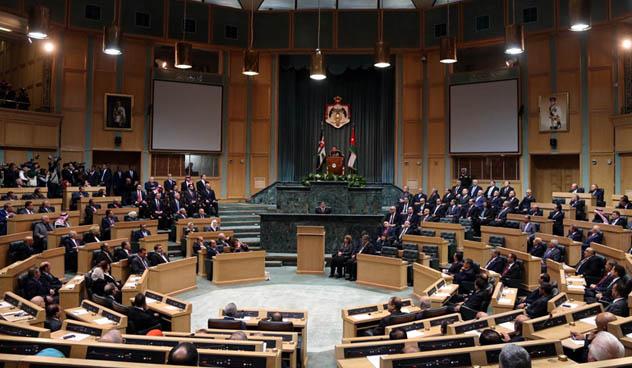The Legistlative Branch

The legislative power is vested in the Parliament and the King. The Parliament consists of the Senate and the House of Representatives, according to Article 25 of the Constitution. In political systems, the legislative power plays an oversight and a legislative role within the organisational structure of the state. The legislative power is expected to keep up with changes in national priorities and the shifting needs of society, which arise as a result of development and progress.
"The legislative power undertakes the enactment of laws and oversight on the performance of the executive power"
The legislative power in any political system undertakes two basic tasks:
- Enactment of laws
- Oversight on the performance of the executive power
Theoretically, the main raison d’etre of the legislative power is to enact the laws needed by the government and society, and towards that end, it exercises the following:
- Suggests and enacts laws
- Political oversight on the performance of the executive power
- Provides the government with guidance to best serve the common good
- Educates society members on governmental and political affairs through their representatives
- Represents individuals and groups in the political decision-making process
- Holds public debates on political affairs
- Exercises financial monitoring in issues pertaining to the state budget and endorsing the budget
According to Article 25 of the Constitution, the legislative power is vested in the Parliament and the King. The Parliament shall consist of the Senate and the House of Representatives. Article 36 stipulates that the “King appoints the members of the Senate and appoints the Speaker of the Senate from amongst them and accepts their resignation,” while Article 63 stipulates that the “Senate, including the Speaker, shall consist of a number not exceeding one-half of the number of the House of Representatives”. Article 67 stipulates that the House of Representatives shall be composed of members elected by general, secret and direct election in accordance with an election law that shall ensure the right of candidates to observe the electoral process, the punishment of those adversely influencing the voters' will and the integrity of the electoral process in all of its stages.
The Speaker of the House of Representatives, according to Article 69 of the Constitution, is elected for a period of a calendar year, and he may be re-elected.


